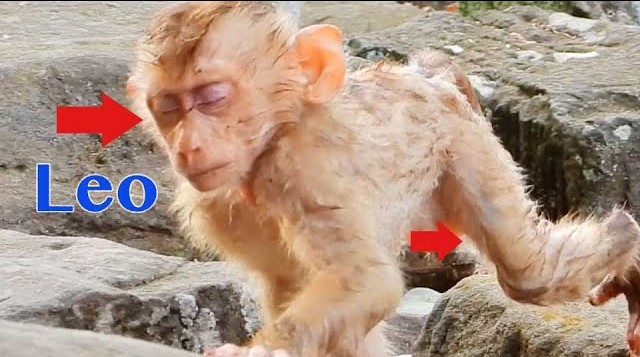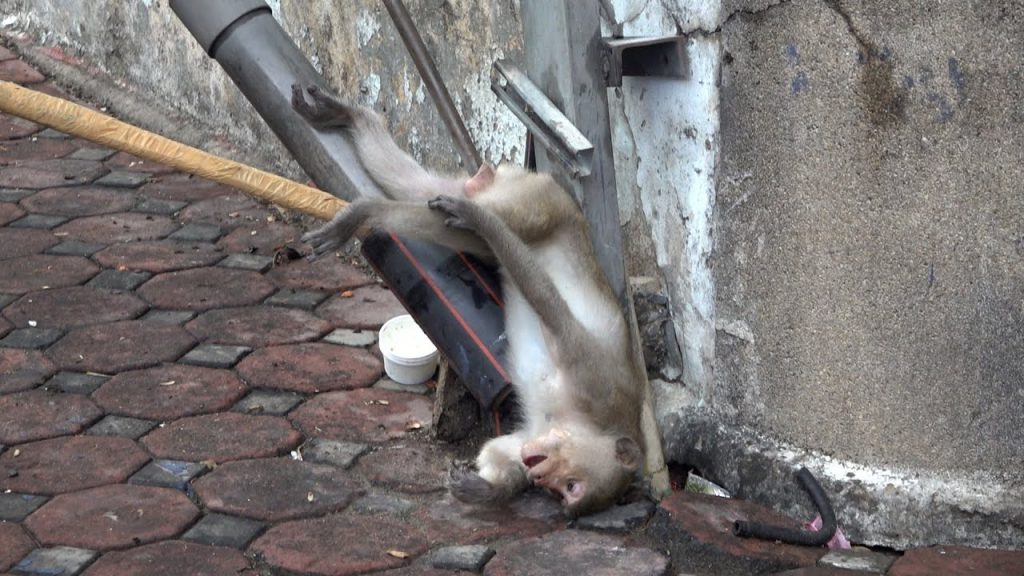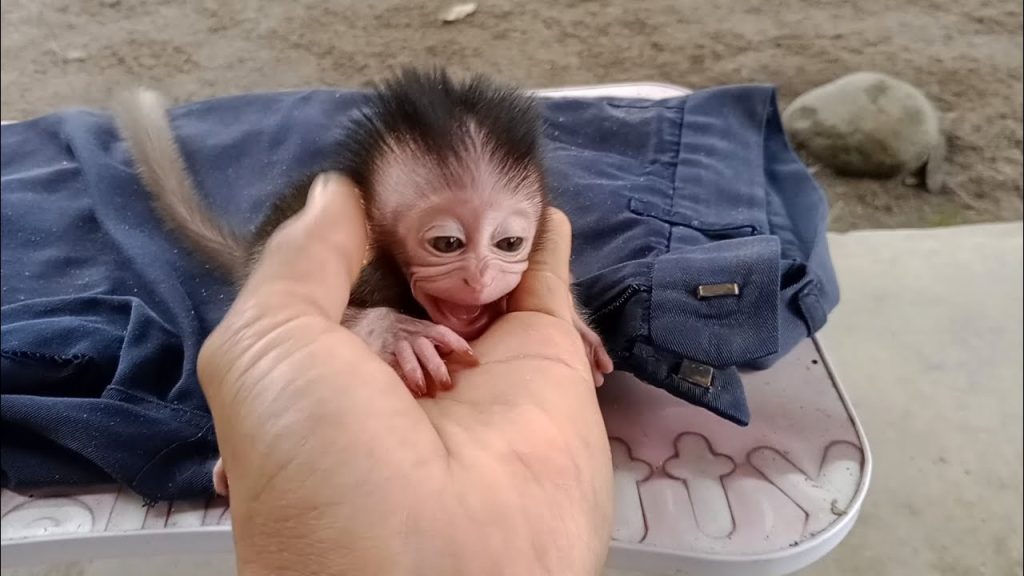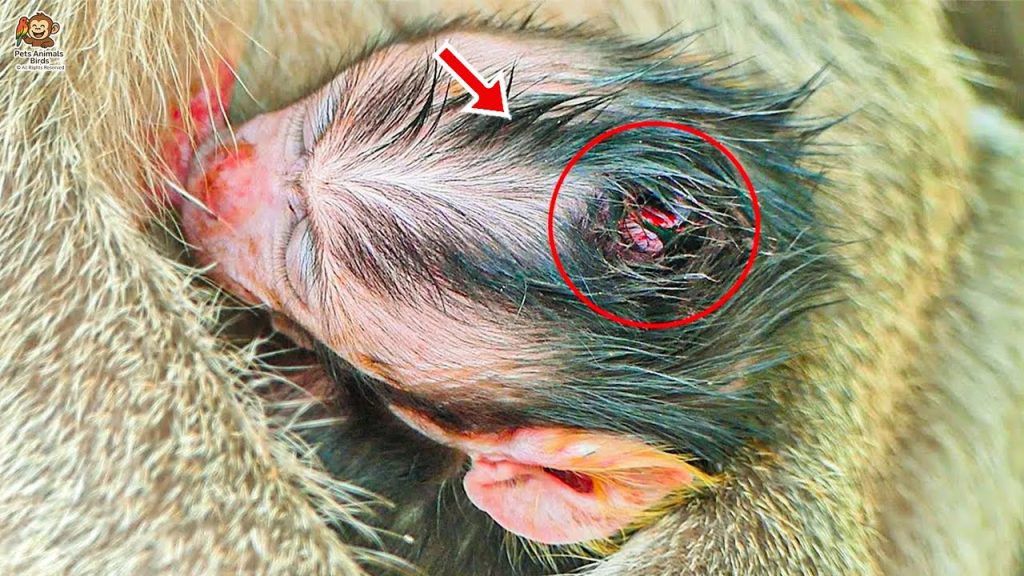
Baby Leo’s story began with pain, uncertainty, and a visible struggle that touched the hearts of everyone who saw him. His tiny eyes, the very windows to his world, were clouded with suffering before he was finally rescued and given a chance at treatment.
When first spotted, Leo looked weak and disoriented. His eyes were inflamed and partially closed, as if every blink caused discomfort. He stumbled often, moving slowly and keeping close to the ground. For a baby monkey, whose life should be full of play, climbing, and discovery, this was heartbreaking to witness. Other young monkeys in the troop darted through branches, but Leo simply sat still, his small body hunched, his gaze unfocused.
His mother was absent, and without her constant protection, Leo’s condition worsened. In the wild, an injury or illness to the eyes can mean the difference between life and death. A baby who cannot see well is more vulnerable to predators, falls, and even aggression from other troop members.
When local observers noticed his suffering, they alerted a nearby NGO specializing in wildlife rescue and rehabilitation. Time was critical—eye infections in monkeys can spread quickly and cause permanent blindness.
The rescue team approached with care. At first, Leo panicked, trying to climb away despite his impaired vision. His tiny cries echoed in the trees, a mix of fear and confusion. But within minutes, gentle hands had him safely secured. His small, trembling body pressed against the rescuer’s chest as if sensing that, for the first time in days, he was safe.
At the NGO’s facility, veterinarians immediately examined him. Dirt and dried discharge had crusted around his eyelids, and swelling made it hard for him to fully open them. They cleaned the area carefully, using soothing solutions to ease the pain. Leo winced but did not resist much—perhaps too weak to fight, perhaps beginning to trust the calm voices and gentle touch.
Over the next few days, he received medication, proper nutrition, and a warm, quiet place to rest. Slowly, his eyes began to clear. The swelling reduced, and his movements grew livelier. He started exploring his enclosure, climbing small branches, and even playing with soft leaves and ropes provided for enrichment.
What made his recovery even more touching was how quickly his personality began to shine. Leo went from a silent, still baby to a curious and playful little monkey, occasionally making tiny chatter sounds as if talking to his caretakers.
For those who had seen him at his weakest, the transformation was emotional. The “million tear drops” were not only for his suffering but also for the joy of seeing him safe and healing.
Leo’s journey is a reminder of the difference compassion and quick action can make. Without intervention, his story could have ended in silence and loss. Instead, thanks to dedicated rescuers, this baby monkey now has a future—and perhaps one day, he will see the world with bright, healthy eyes again.


